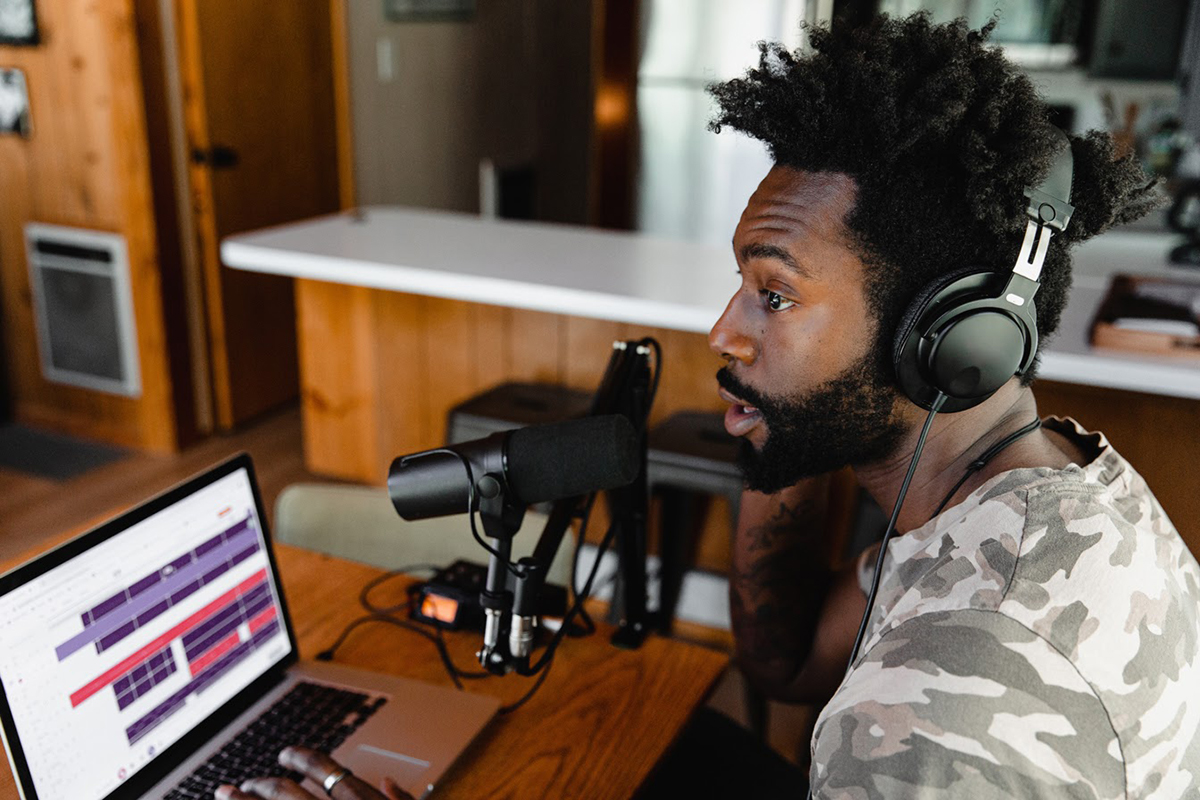Creating a More Just and Merciful World
Essential Practices For Anyone Who Wants To Use Podcasting As A Communication Medium

Podcasts are growing in popularity and introducing more opportunities for creators and listeners.
In the past year, podcasts experienced a big surge as millions of people stayed home due to the pandemic. Audio content continues its steady growth in 2021. According to data from Edison Research and Triton Digital, approximately 80 million Americans (28 percent of the U.S. population age 12+) are now weekly podcast listeners, a 17 percent increase over 2020.
The popularity makes sense. The world has become busier and podcasts allow people to multitask. Podcast listening happens at home and work, while driving and exercising. The format gives listeners a chance to dive deep on topics without having to take the time to read or watch video.
Content Creators Find Their Voice with Podcasting
Listeners find many benefits to consuming podcasts, but audio also presents advantages for content creators.
For the creator, podcasts are easy to produce and inexpensive. They allow for a more personal approach and can enhance a multimedia communications strategy. Although podcasting can be a form of media that is simple to produce, it still requires preparation. Like any skill, practice makes perfect. There are important vocal practices that budding and experienced podcasters can use to make a strong delivery.
Three Elements to Achieve Great Vocals
Creators can train their voice to improve podcast quality. It is important to sound natural when talking on a podcast. Controlling your voice and thinking about how you sound is an essential part of being a good podcaster. This means controlling things like vocal volume, pitch and intonation.
Here are the three elements of using your voice in the most effective way possible.
- Style – includes enunciation and the ability to convey emotions.
- Technique – standing, breathing, pacing, pauses and inflection.
- Maintenance – voice protection, hydration and warm-ups.
Style
Research podcasters in your niche to help develop your style. Does their voice and narration style fit your topics? Do you need to sound more casual or serious? Do you want to sound like an authority or a friend? Work on enunciation and consider modifying your vocals to some extent. Record yourself, listen and modify as you see fit. The goal is to find the right balance between your natural voice and focused enunciation.
Technique
Practice standing and breathing while recording your podcast. Standing enables deep breathing and makes it easier to pronounce words with clarity. Position yourself in a way that allows for better expression, gestures and whole-body movement—these motions impact vocal delivery and can improve overall quality. Another important part of technique is pausing. Pauses grab listeners’ attention and prepares them to receive your message.
Maintenance
Rest, hydration and warm-ups are essential to maintaining your voice. According to the Cleveland Clinic, ways to keep your voice healthy and strong include warming up with neck and shoulder stretches and humming before performing vocally; resting your voice if you have been talking too much or loudly; and drinking plenty of water to lubricate your vocal folds.
In conclusion, podcasts are growing as a forum for news, marketing and advocacy. Many content creators are incorporating podcasts in their communications strategy. To be effective as a podcaster, people need to feel comfortable while listening to you. Your audience cares about your personality and connecting with you. Vocal practices can help you make this connection.
Are You Interested in Expanding Your Communications Skillset?Podcasts are just one way to communicate information and interests. Pursue Carlow’s Communications degree with a focus on Digital Media and you will master the elements and software of digital media to deliver your message clearly, concisely and widely. In the program, you will learn to hone the skills needed for oral, written and digital communication.
